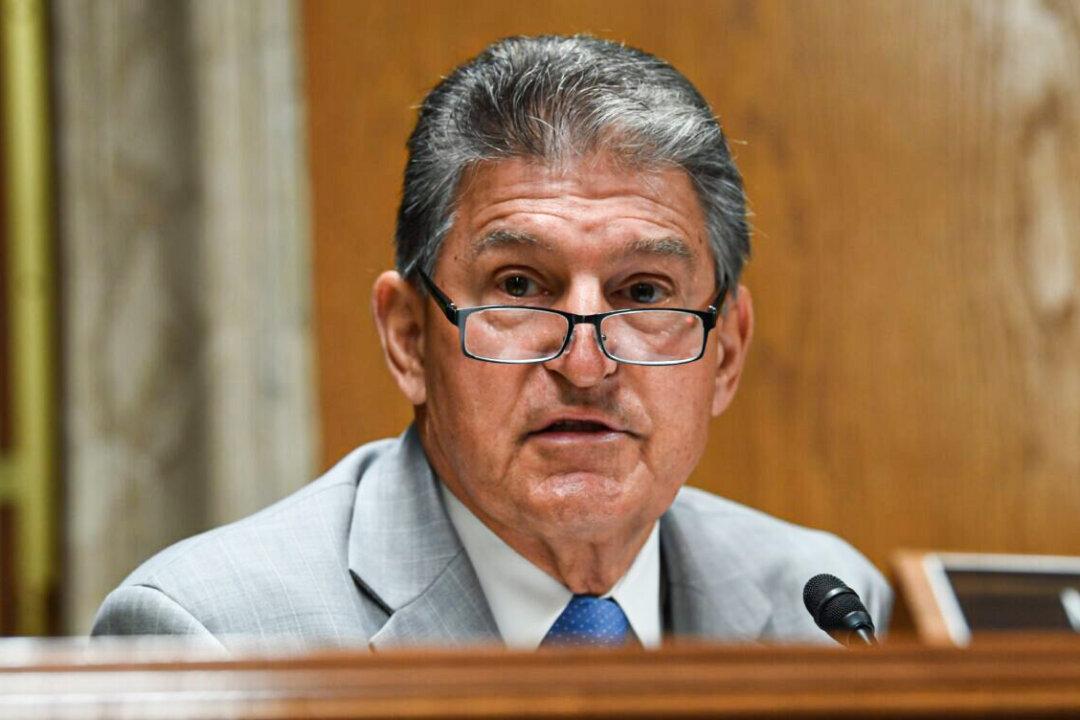Late in the evening on July 14, Sen. Joe Manchin (D-W. Va.) reportedly killed any hope for a scaled down version of the Build Back Better (BBB) social spending package, which had picked up steam in closed-door inter-party negotiations among Democrats in the Senate.
According to reports, Manchin told party leadership that he would not accept any package that creates new climate spending or raises taxes from their post-2017 levels, the two main pillars of Democrats’ hopes for the renewed BBB.





